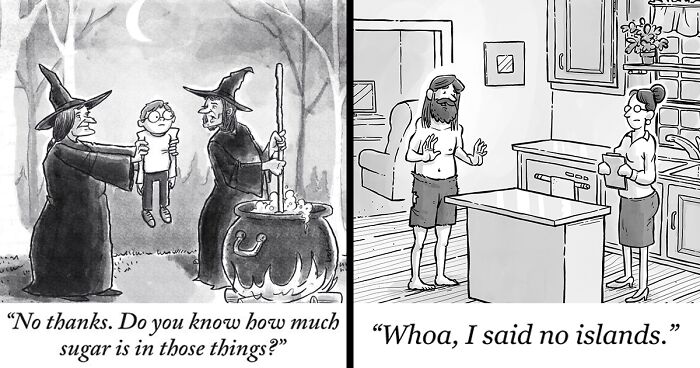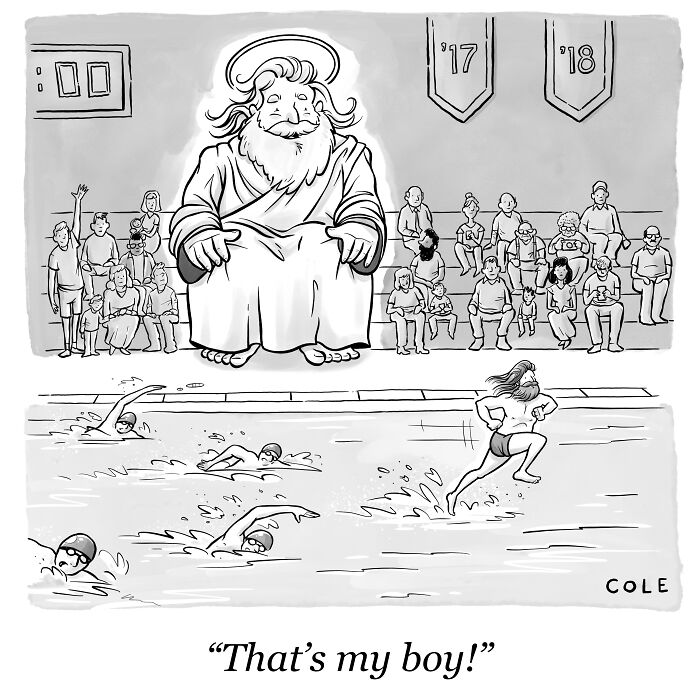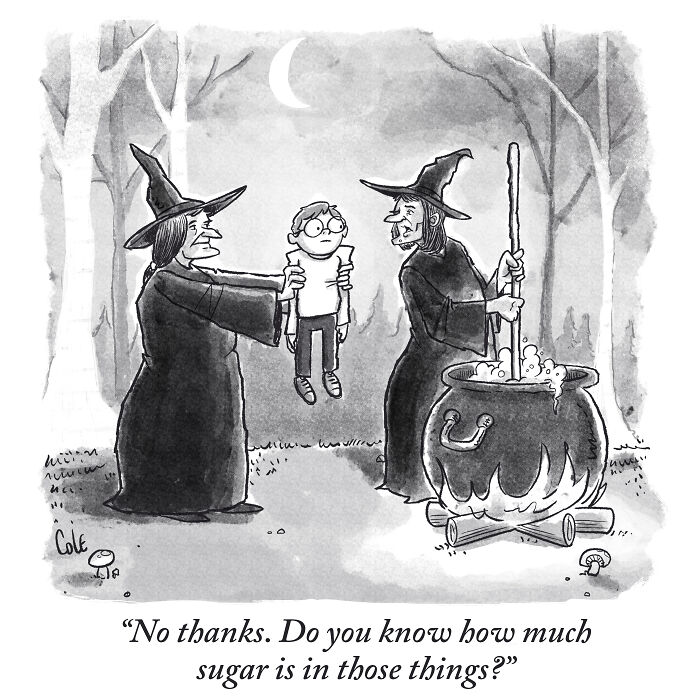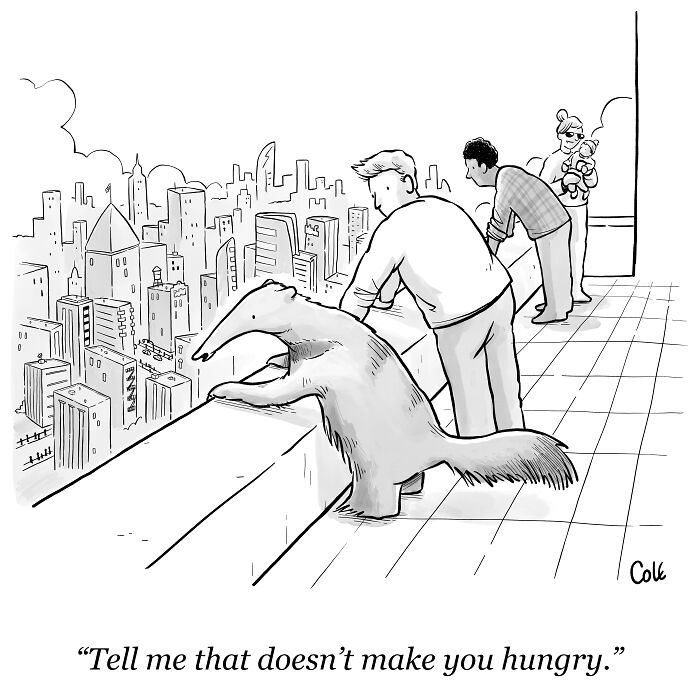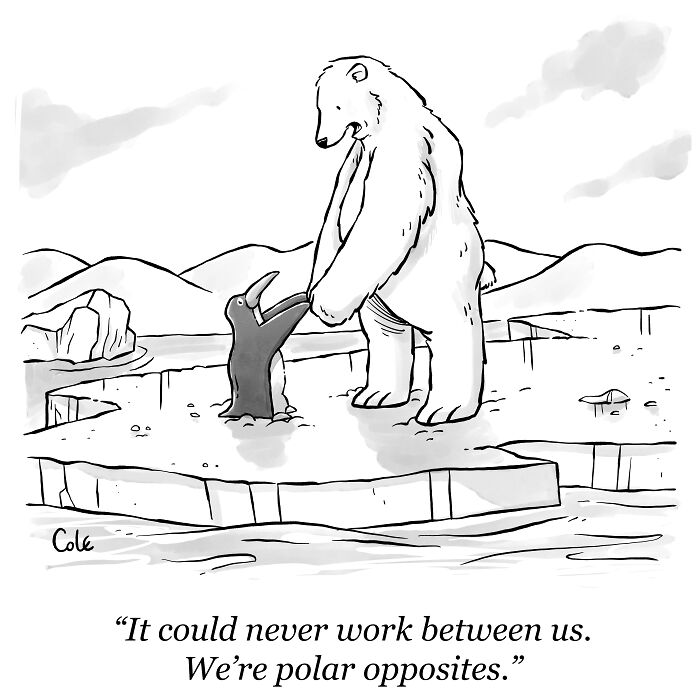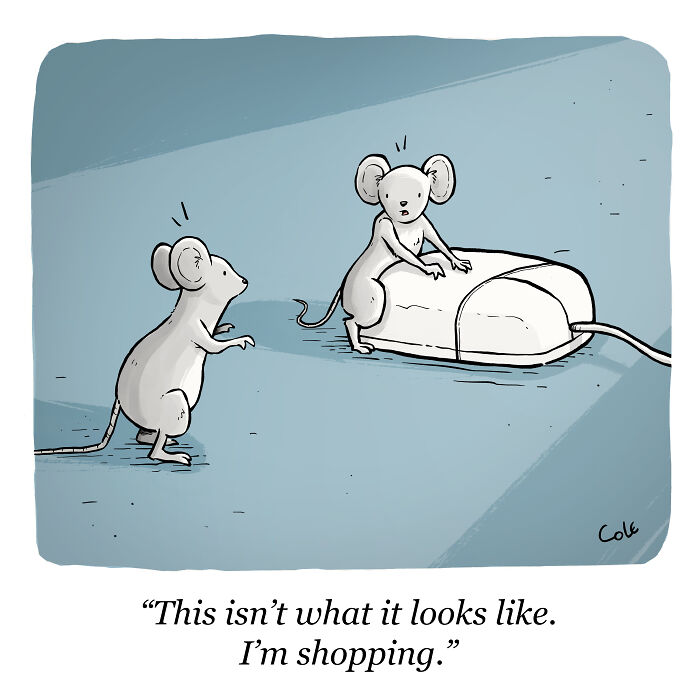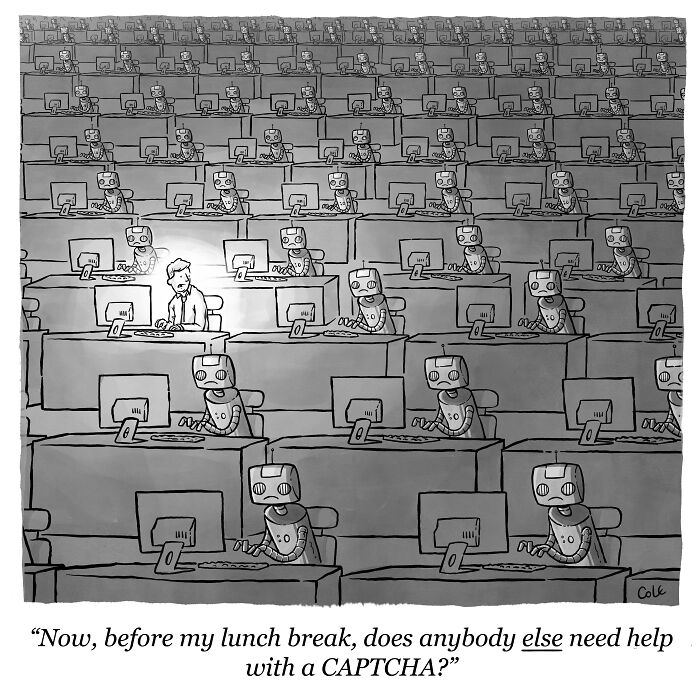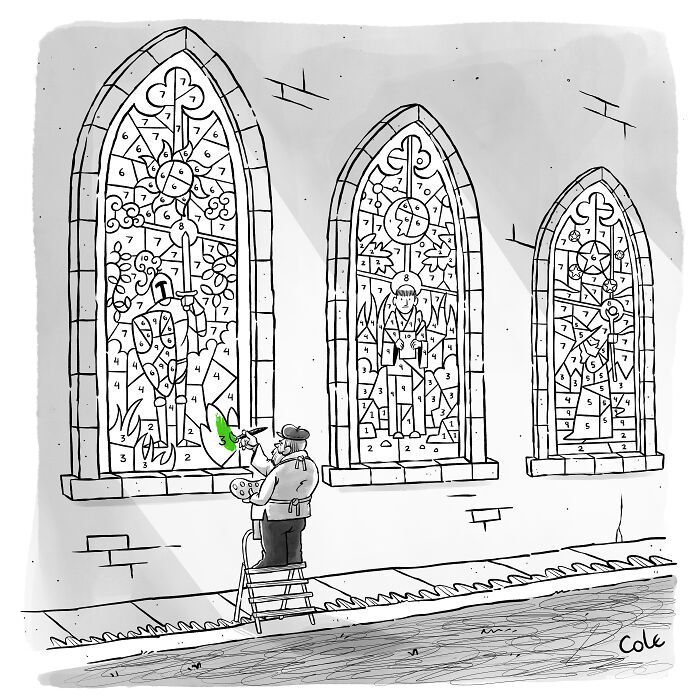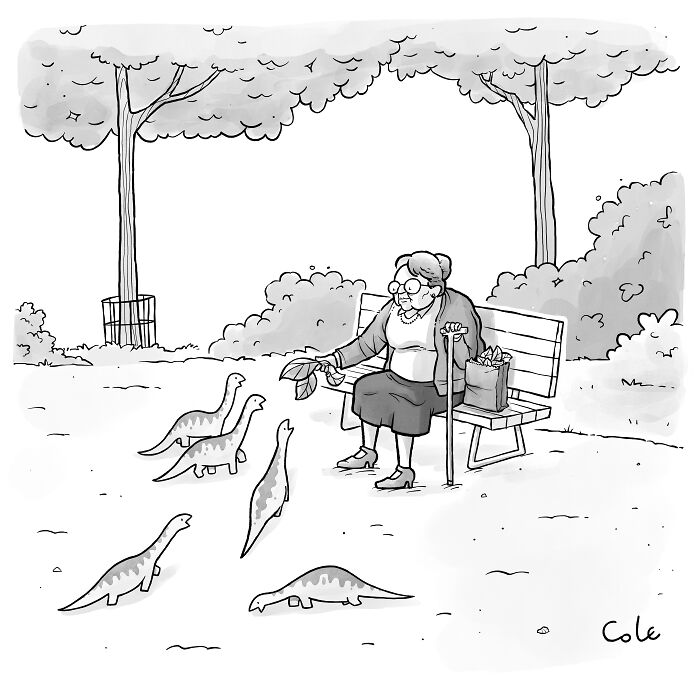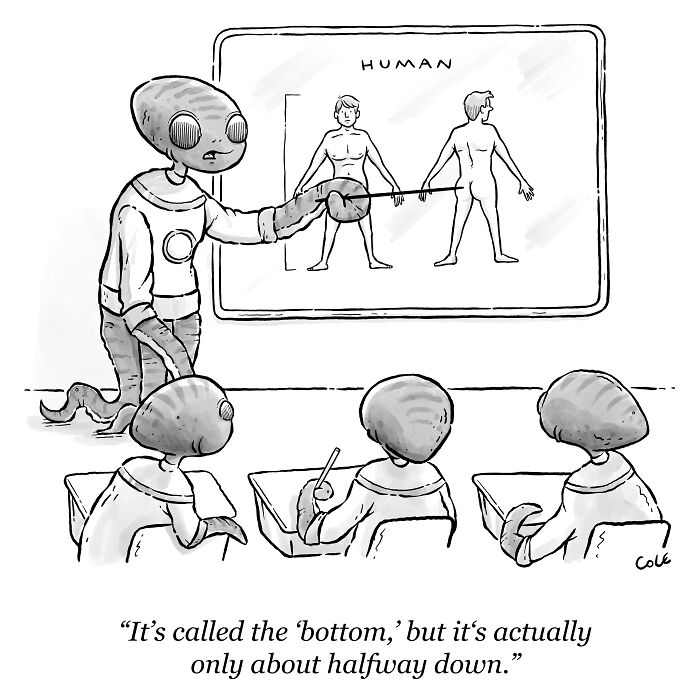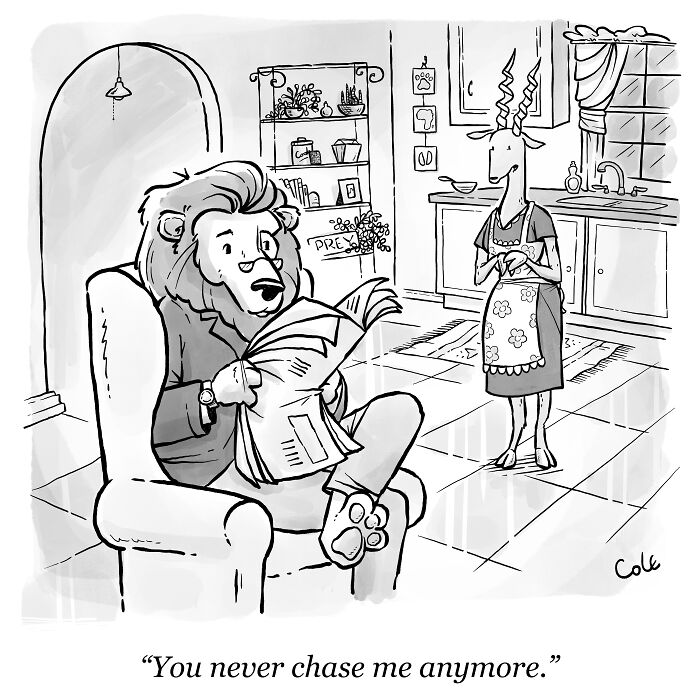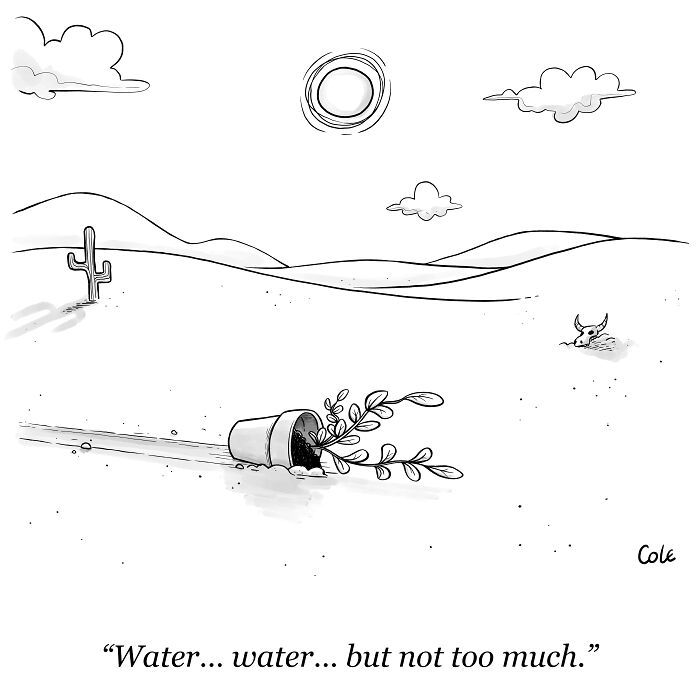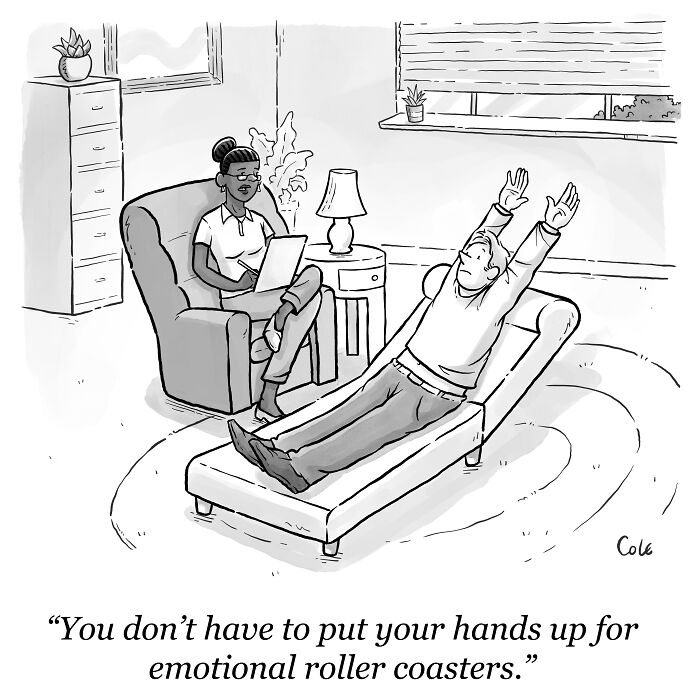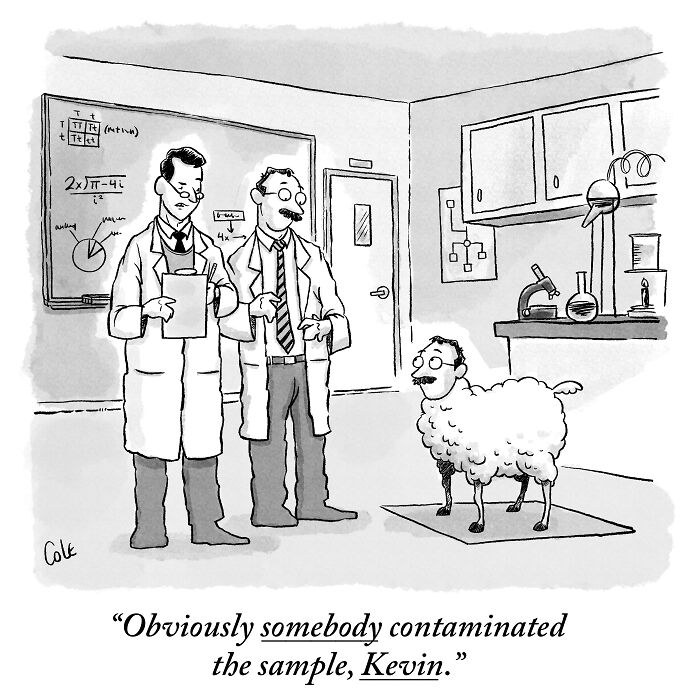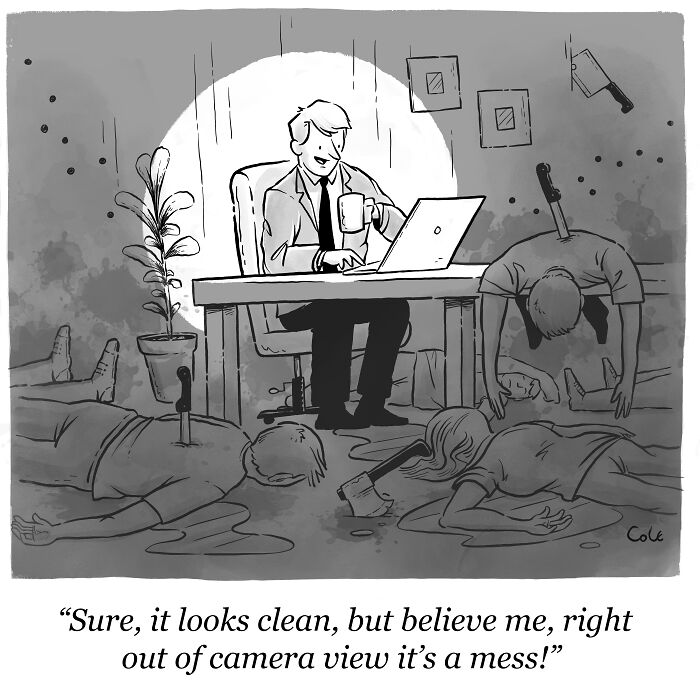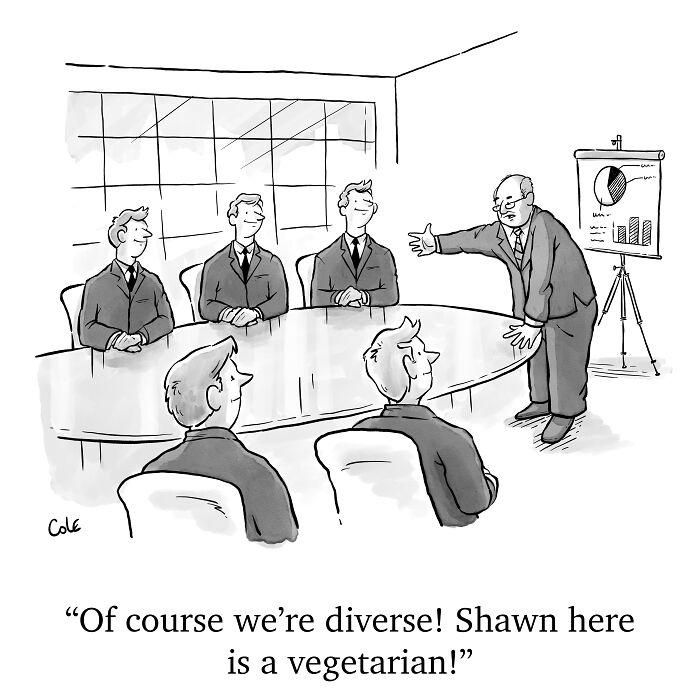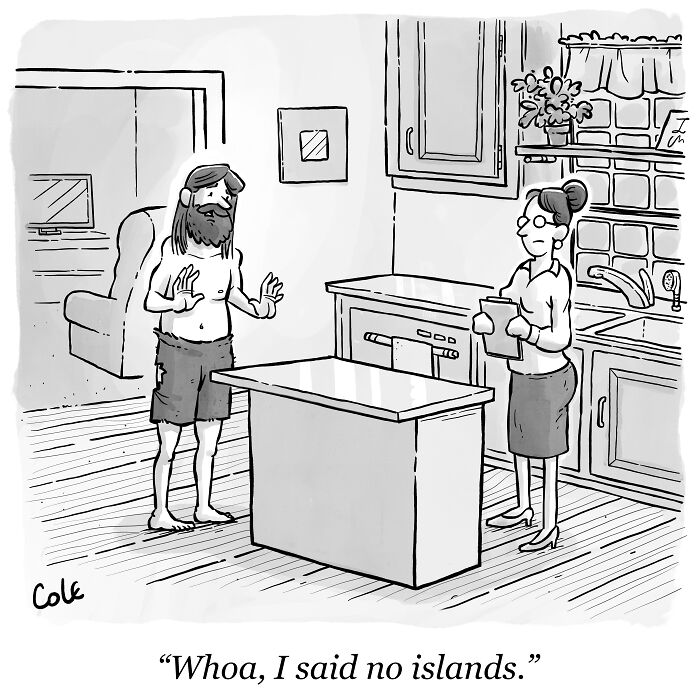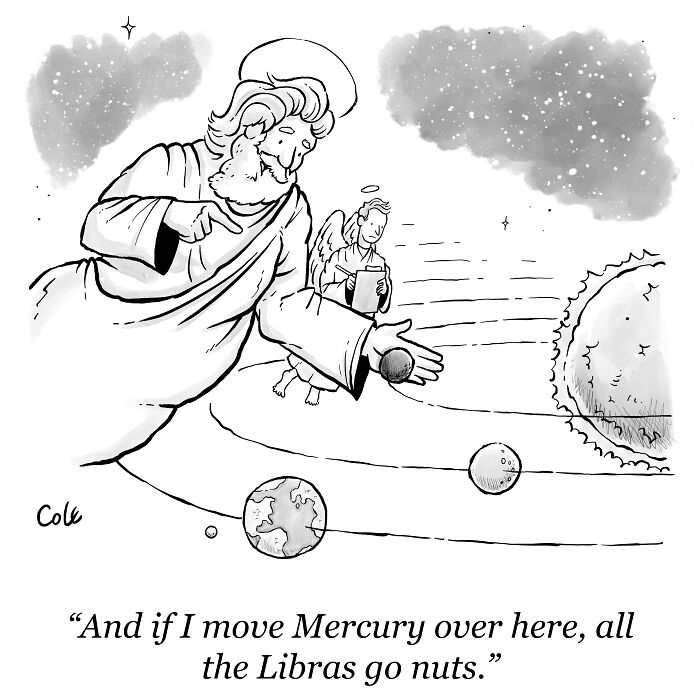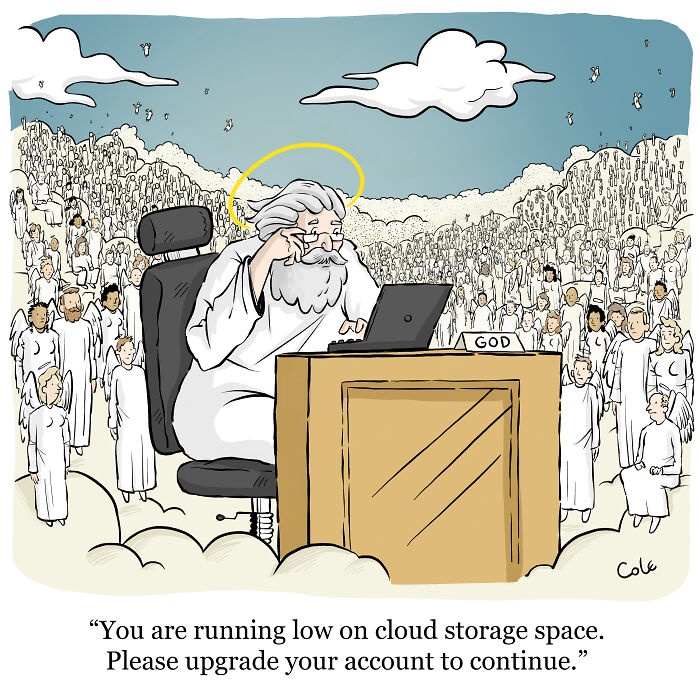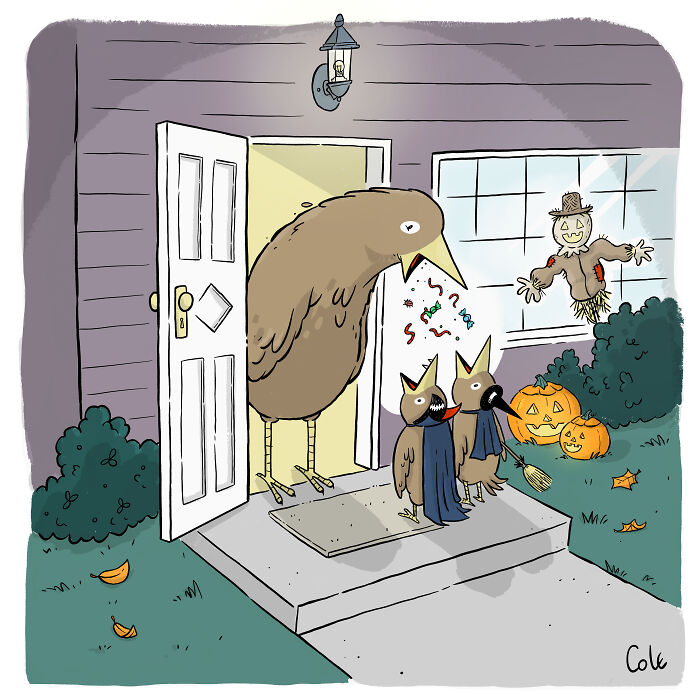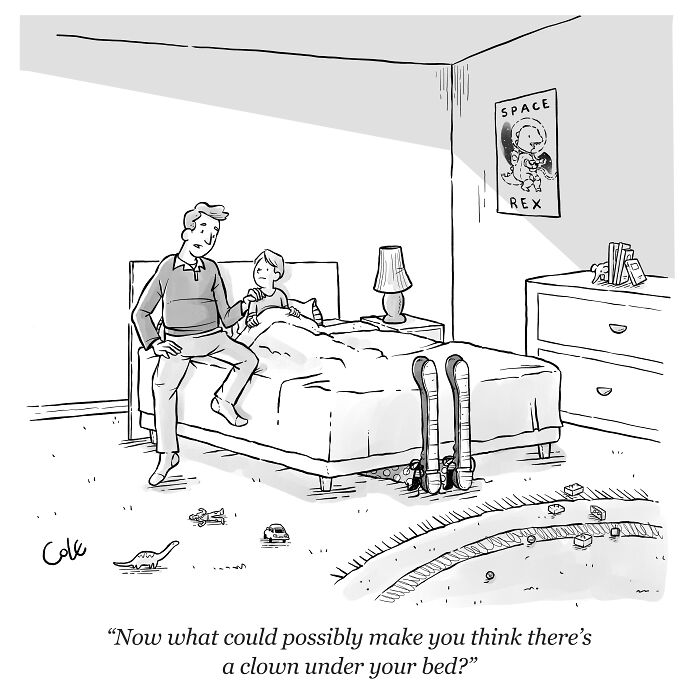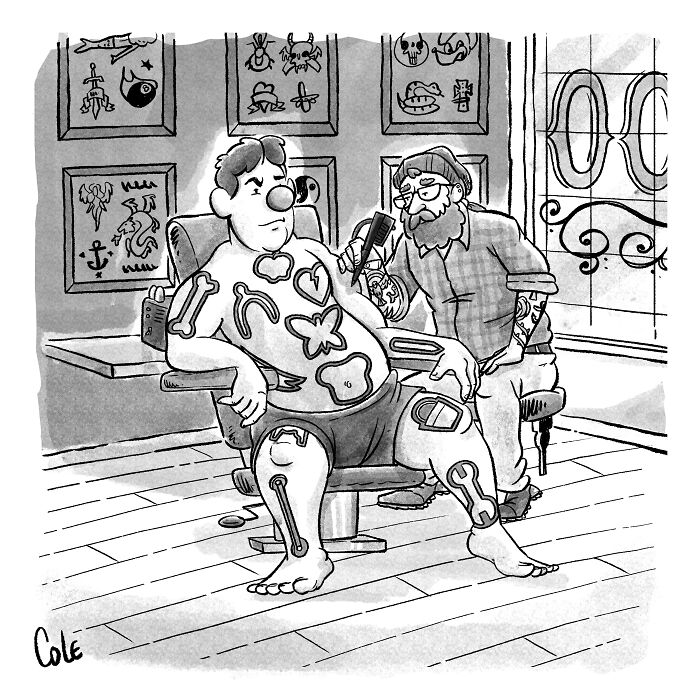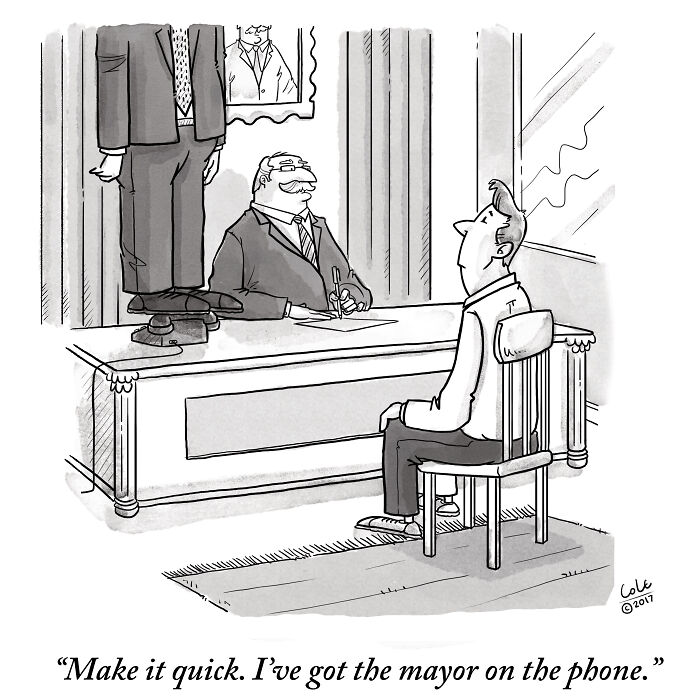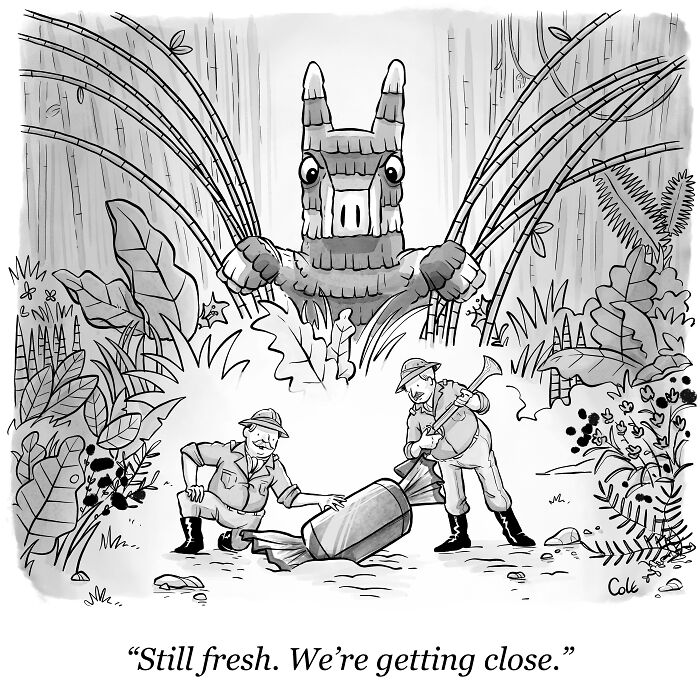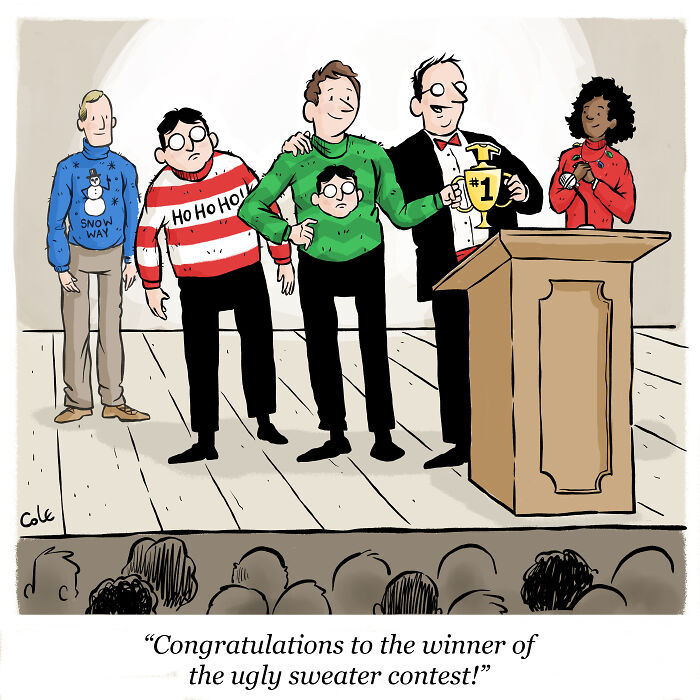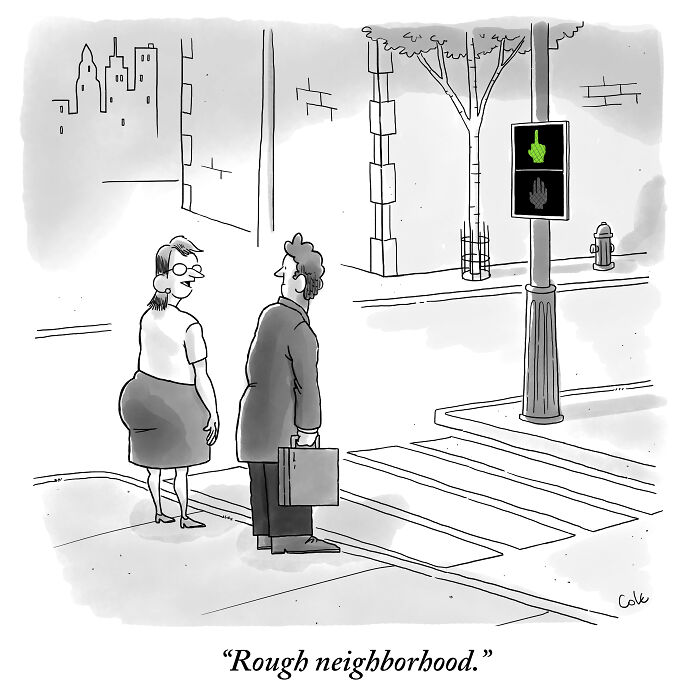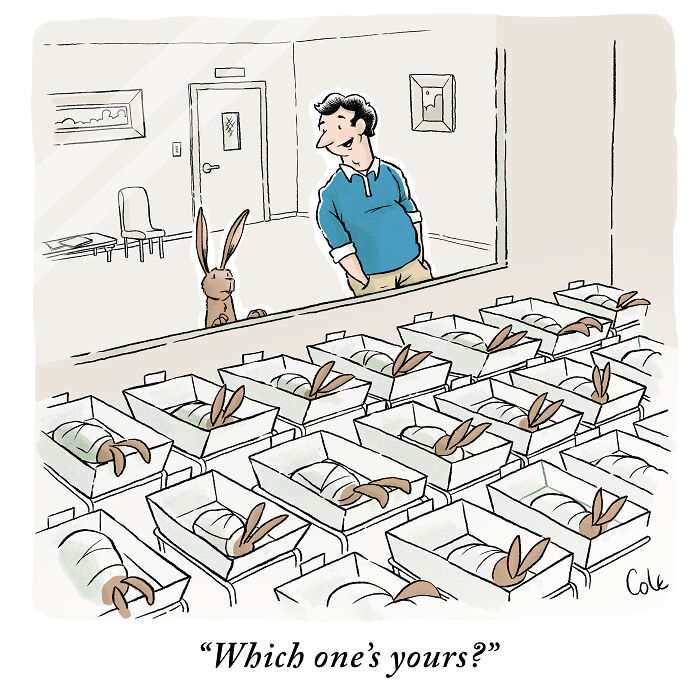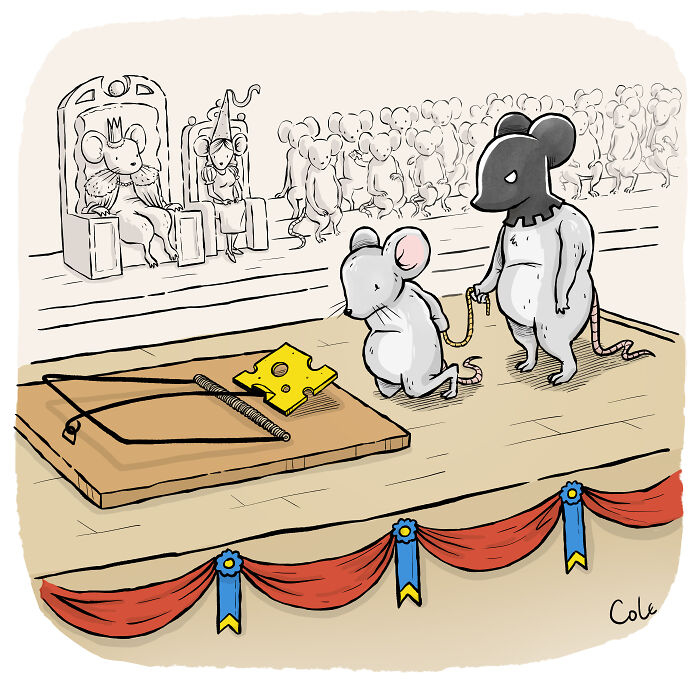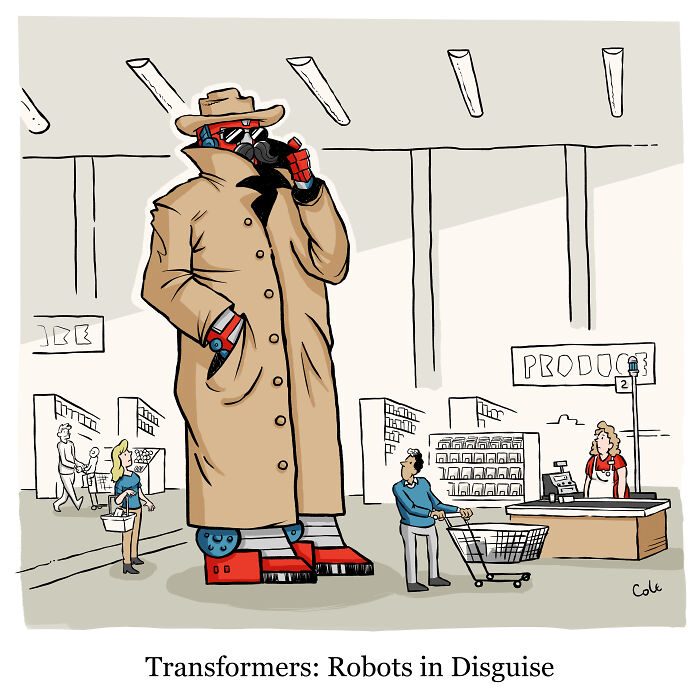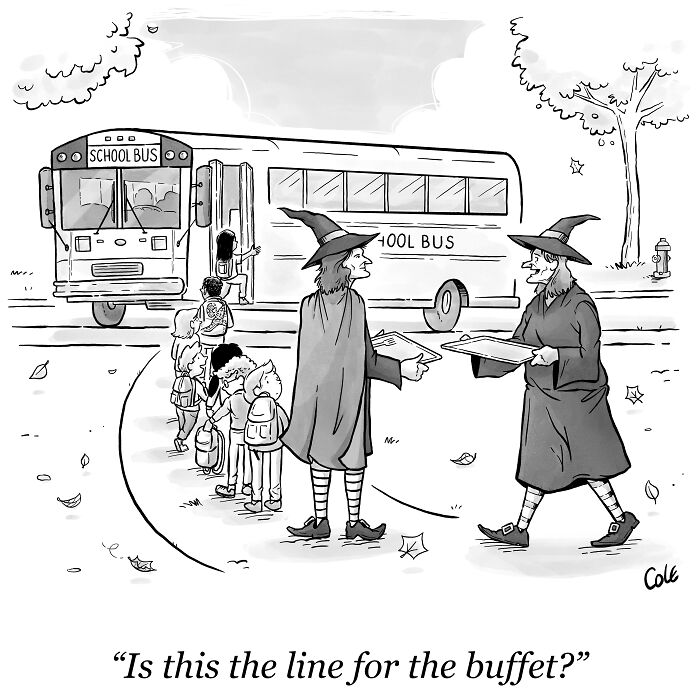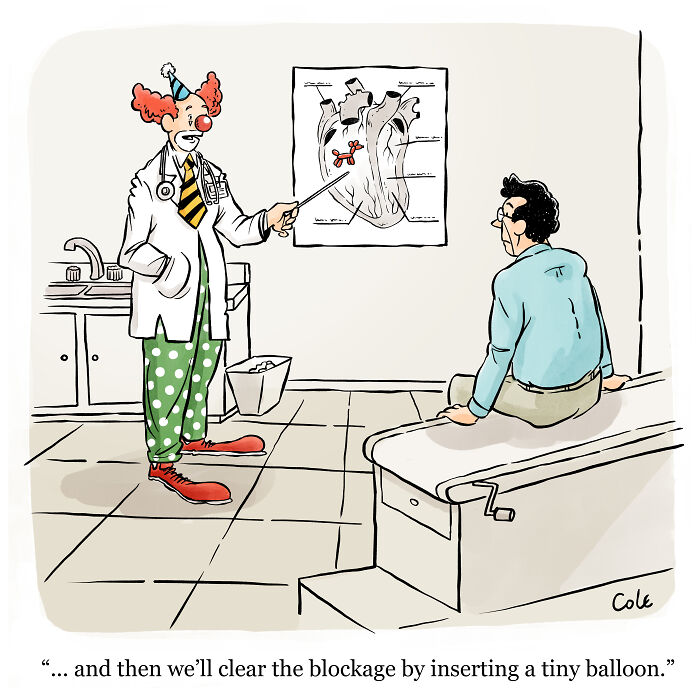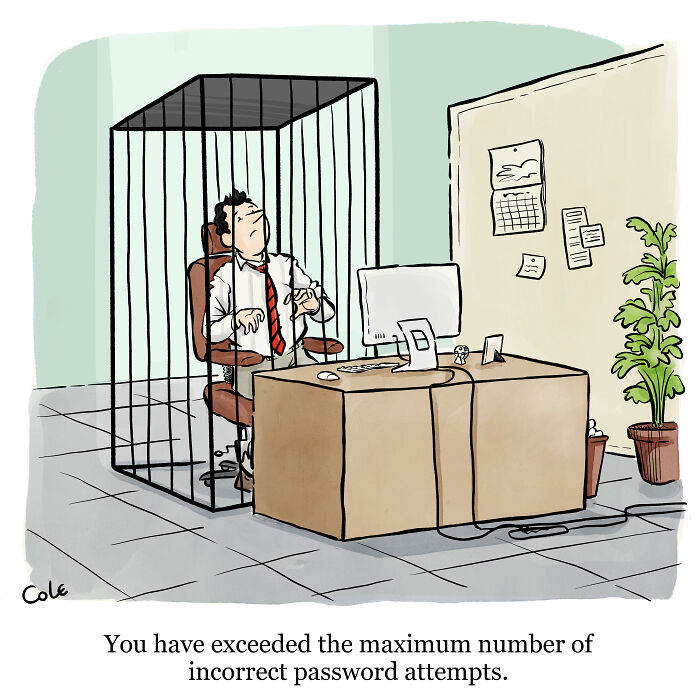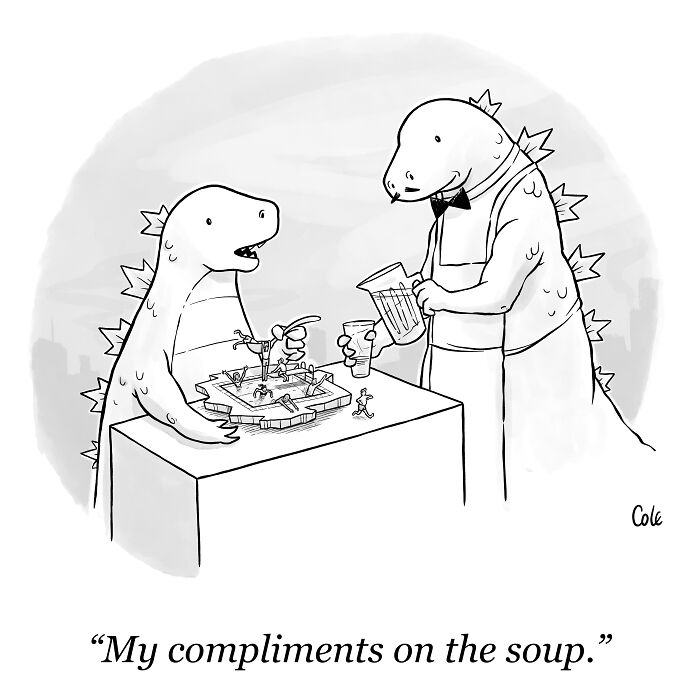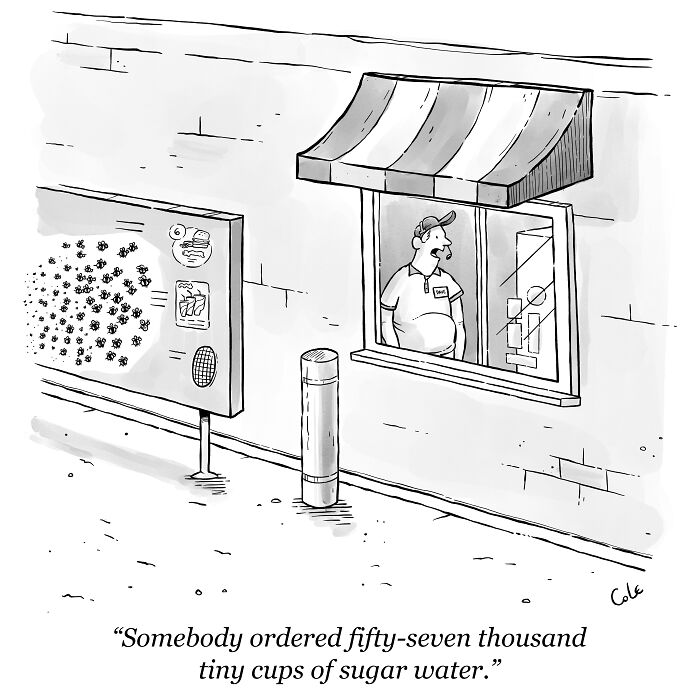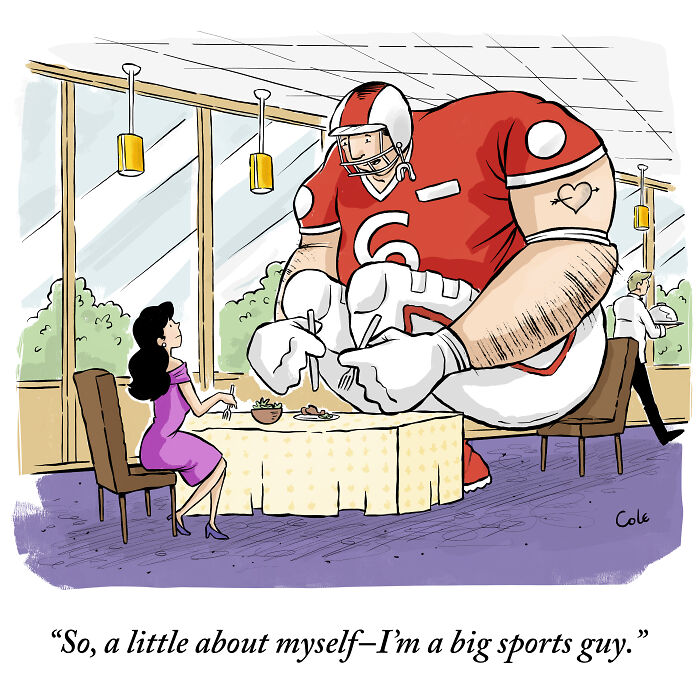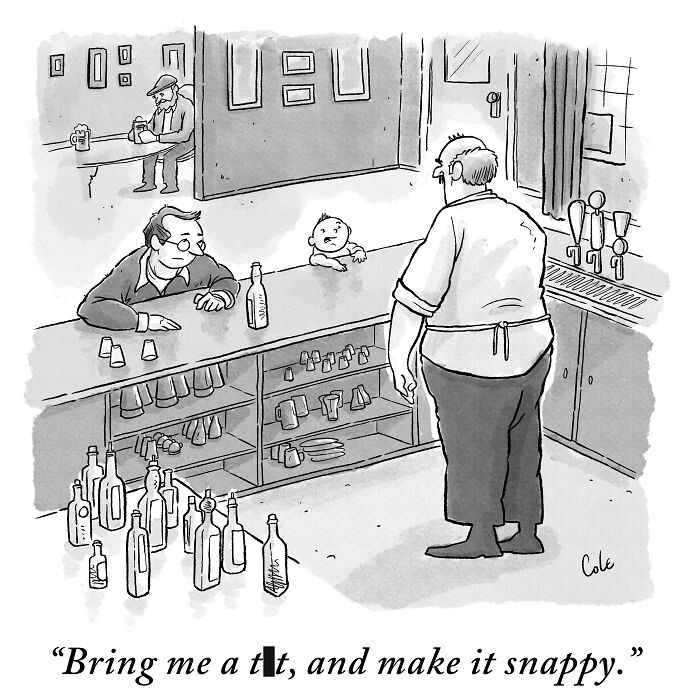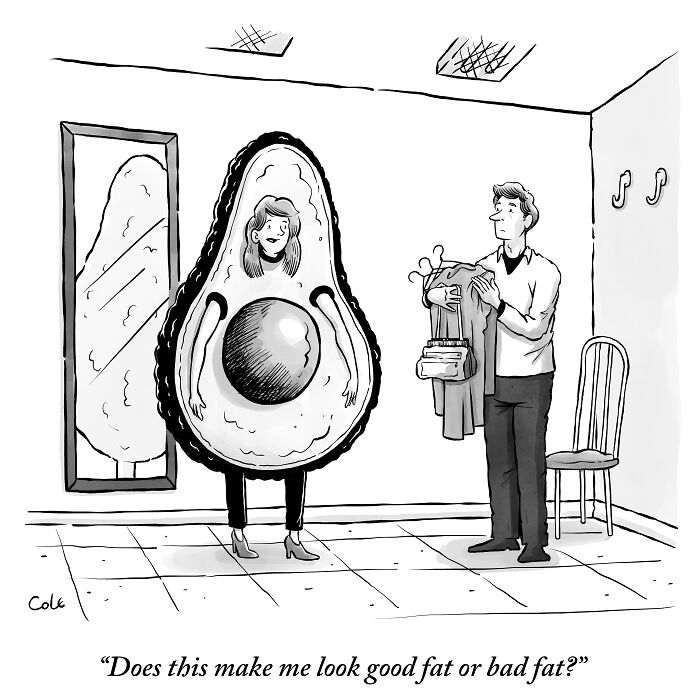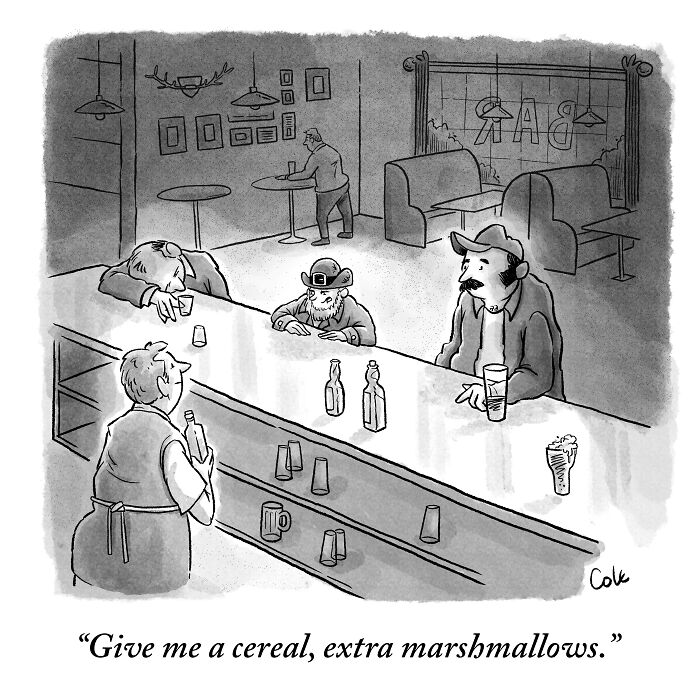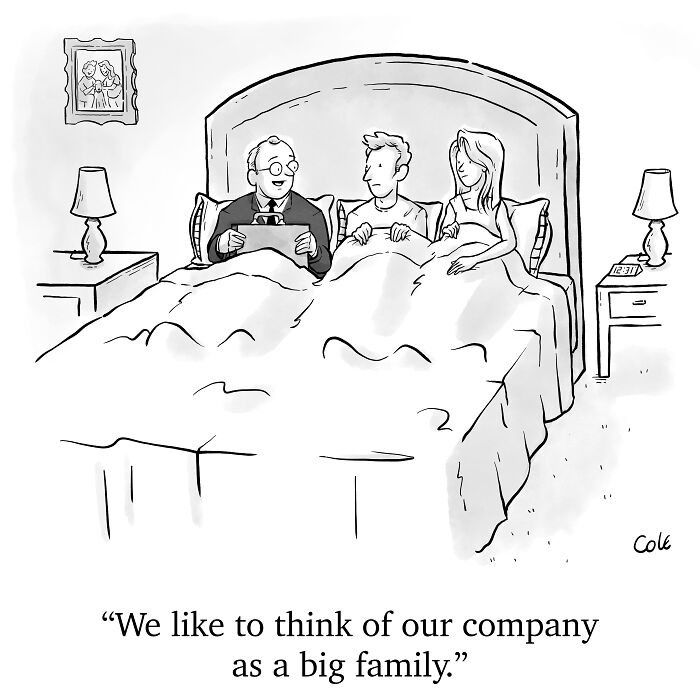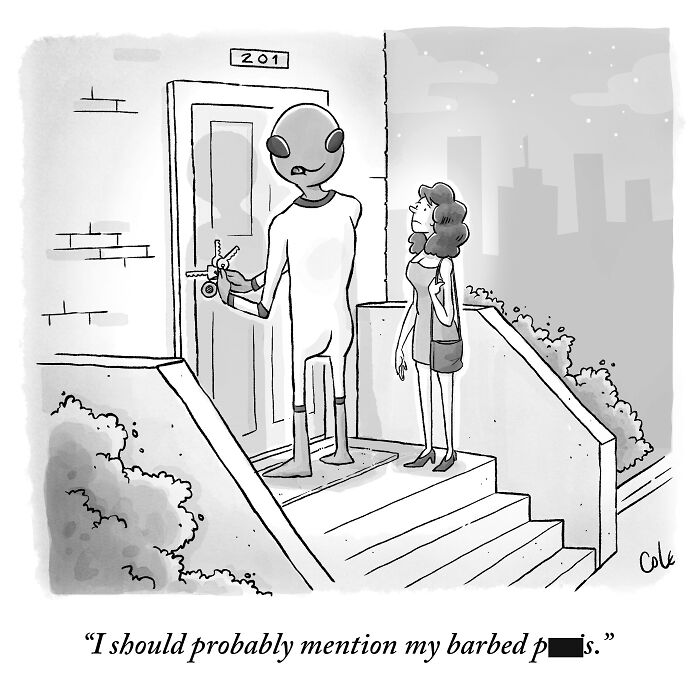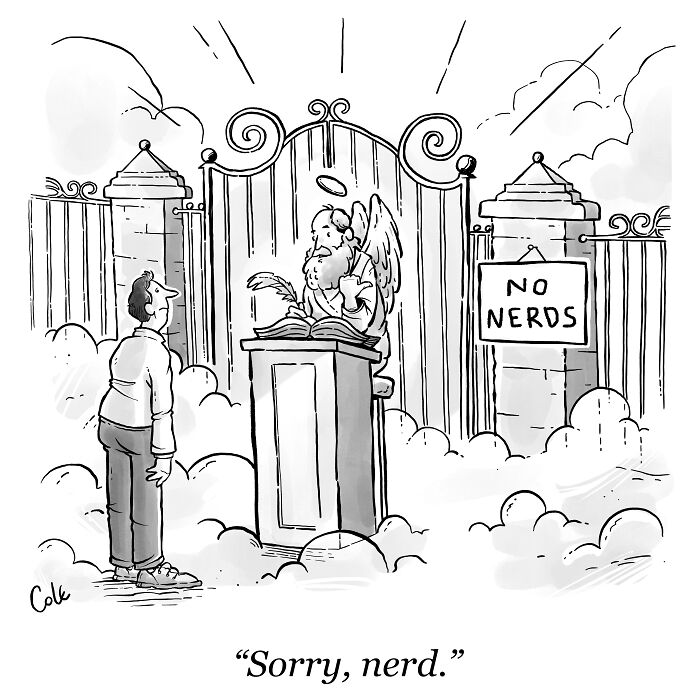To me, single-panel cartoons have always seemed like perfect little nuggets of humor and art - like a meme, but with more artistry. I remember lying on the floor, reading the Sunday comics as a kid and being fascinated. I always wanted to be a cartoonist, but the daily deadline intimidated me, even then. How did they come up with SO MANY ideas? It still impresses me.
Turns out, it's possible to be a successful cartoonist on your own schedule. You may not get a consistent paycheck for it, but you can still create something to be proud of.
More info: Instagram
This post may include affiliate links.
I enjoyed the story-based comic strips (especially Calvin and Hobbes), but it was the single-panel cartoons that really drew my attention. One day you'd get a joke set in ancient Egypt, the next day it could be in outer space, or a classroom, or a bar, and maybe it would be Dracula speaking, or a frog, or a married couple. The possibilities were endless! The panels that influenced me the most were Brevity by Guy and Rodd, F Minus by Tony Carrillo, Cornered by Mike Baldwin, Off the Mark by Mark Parisi, Speed Bump by Dave Coverly, and of course, The Far Side by Gary Larson.
I drew a lot as a kid, but I was never particularly good. By the time I was in college, it was mostly restricted to the margins of my class notes. I had a night shift job at a youth detention facility, and that's where I started drawing cartoon ideas in order to make the long nights pass a little faster. In January 2011 (the same month I got married) my new wife encouraged me to take my sketches to the editor of the university's newspaper. Pretty soon I was doing three cartoons a week for the Utah Statesman.
To practice and hone my skills, I'd regularly compete in a weekly caption contest game with the Cartoonists Club of Great Britain (I was the only American) where we would all try to create a cartoon with the same caption or based on the same theme and vote on a winner.
In 2013, I won a competition held by a group called The Cartoonists Studio called "So You Wanna Be A Cartoonist." Cartoonists from all over the country would submit one cartoon per week and people would be eliminated until there was a winner. As part of my prize, I won a mentorship by one of my idols, Dave Coverly. He helped me get into the Funny Times magazine, and it just grew from there.
I remember the sun catchers that came out in the late 80s early 90s that were like this one, only the chart was on the paper that came with the set. I never did follow the charts, though...
When I first started, I would draw on computer paper and ink with a Pigma Micron pen, but I quickly transitioned to working digitally. The main reason was that I was living in a tiny apartment and working digitally saved a lot of space. There weren't a lot of digital options yet, but I found a small laptop called an HP Touchsmart TM2 that had a stylus with it. Later I got a Cintiq Companion, and now I work on an iPad Pro. Occasionally I work traditionally, and I really love it. I hope to pull out the ink and pens more often in the future. It's satisfying to create something physical that you can hold (and sell!).
After I started cartooning more, I discovered my love of art and changed my major from Biology to Graphic Design. I graduated from Utah State University in 2015 with a BFA in Art - Graphic Design and minors in Biology and Spanish. A few weeks before I graduated, I got a job with a local advertising agency called Mighty Clever. I worked there for 8 years before moving to a new job. Now I work as the Graphic Design/Content Coordinator for a local city government.
Can we appreciate the paw/Africa/hoof art in the background? That's adorable.
After I graduated, life got busy with a full-time job and two kids, and my cartooning slowed way down. I was coloring all my cartoons, and my process was really slow and laborious. For a while I was only producing about one new cartoon a month. My motivation had tanked, and I wasn't having as much fun. Then I had some family members gift me some books by New Yorker cartoonists. I got a collection by Peter Arno, a collection by Charles Addams, and the (big red) Complete Collection of New Yorker Cartoons. The New Yorker style of cartoons really intrigued me with the loose lines and the gray ink washes. I started to experiment with a new style, and soon had drastically cut down the time it took me to complete a cartoon, and I liked the results a lot more. I had gotten my motivation back. I'll still use color sometimes, but I really love the gray wash look.
Today, I've been published in places like Reader's Digest, the Saturday Evening Post, the Wall Street Journal, Air Mail, Yahoo!, the American Bystander, Alta Journal, Weekly Humorist, the Funny Times, Luckbox, Funnies Extra!, Utah Business Magazine, and more. I've also been nominated twice for Gag Cartoonist of the Year by the National Cartoonists Society.
People always wonder how to consistently come up with new ideas. The boring answer is that you just have to practice a lot. It's a good idea to read a lot of cartoons to get your brain used to the way they're constructed, then practice creating your own until your brain learns the language of cartoons. You basically have to turn your brain into a ChatGPT-esque machine where you can constantly input data and mix it up with other data and spit it out in interesting and unique ways. Find something you enjoy doing, and do it a billion times. Some of it is bound to be good.
One day after I buy a house, I'll finally save up to buy a shirt of my own...
A typical feathered dino Halloween. Nothing to see here, move on
I made all my passwords "Incorrect" so when I mess it up my computer reminds me what it is
Not a single dud. It looks like a few of these were published in the New Yorker!
Not a single dud. It looks like a few of these were published in the New Yorker!

 Dark Mode
Dark Mode  No fees, cancel anytime
No fees, cancel anytime 




